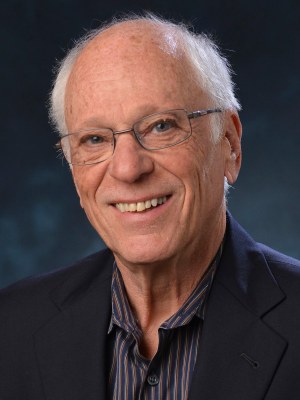Scientist, authors receive 2016 Grawemeyer Awards
Dr. Steven Maier, a scientist who discovered a brain mechanism that not only produces resilience to trauma but also aids in coping with future adversity, has won the 2016 University of Louisville Grawemeyer Award for Psychology. A distinguished professor of psychology and neuroscience and Center for Neuroscience director at University of Colorado-Boulder, he was selected for the 16th prize.
Authors Gary Haugen and Victor Boutros, and their theory that the absence of law enforcement in developing countries undermines the fight against global poverty, earned the 2016 University of Louisville Grawemeyer Award for Ideas Improving World Order.
In the College of Arts & Sciences, Prof. Woody Petry (Psychological & Brian Sciences) chairs the committee that administers the Grawemeyer Award in Psychology, which is given to those who are responsible for works that present new and creative ideas with clarity and power—ideas that substantially impact the field of psychology. Prof. Chuck Ziegler (Political Science) chairs the committee that administers the Grawemeyer Award for Ideas Improving World Order, which is given to those who have taken on issues of world importance and presented viewpoints that could lead to a more just and peaceful world.
Maier’s award-winning work concerns what makes one resistant or vulnerable to stress when bad things happen. Maier showed if test subjects had behavioral control over some element of the adverse event, they were less negatively impacted and also essentially “immunized” against some harmful effects of future bad events, even if those events were uncontrollable. Through laboratory research studies, he uncovered in animal subjects the neural mechanism that provides such resilience in the face of trauma.
The idea that behavioral control induces resilience has become important in psychology, neuroscience and other academic disciplines, as well as clinical research and therapies for depression and anxiety disorders. Maier laid the groundwork for understanding the brain mechanism involved in how one assesses and deals with adverse events. His findings have been replicated in humans using neuroimaging techniques.
“Outside the scientific community, Dr. Maier’s idea of control and its positive effects has become part of popular thinking,” said award director Woody Petry. “His work has applications in many areas, including aging, military training, the workplace and stress-reduction practices such as mindfulness.”
Haugen and Boutros outline the failure of criminal justice systems to address what they call the “plague of hidden, everyday violence” inflicted on the poor. They contend that all economic efforts to address deprivation are likely to fail in the absence of protection against crimes such as human trafficking, sexual assault, police brutality, and forced evictions.

Haugen is founder and president of the International Justice Mission, a human rights organization that works with local authorities to combat violence and build justice systems. He previously served as a human rights attorney for the U.S. Department of Justice and in 1994 directed the United Nations’ investigation into the Rwandan genocide. The U.S. State Department praised him as a Trafficking in Persons “Hero” for his anti-slavery leadership. He holds an undergraduate degree from Harvard and a law degree from the University of Chicago.
Boutros is a visiting scholar at George Washington University Law School. He previously served as a federal prosecutor for the U.S. Department of Justice, investigating and prosecuting human trafficking, hate crimes and official misconduct cases around the country. He also trained law enforcement professionals from the United States and other parts of the world as a member of the Justice Department’s Human Trafficking Prosecution Unit, which helps build the capacity of human trafficking enforcement teams. He is a graduate of Baylor, Harvard and Oxford universities, and the University of Chicago Law School.
UofL presents the Grawemeyer Awards annually for outstanding works in music composition, ideas improving world order, psychology and education and gives a religion prize jointly with Louisville Presbyterian Theological Seminary. The winners will present free lectures about their award-winning ideas when they visit Louisville in April to accept their $100,000 prizes.


